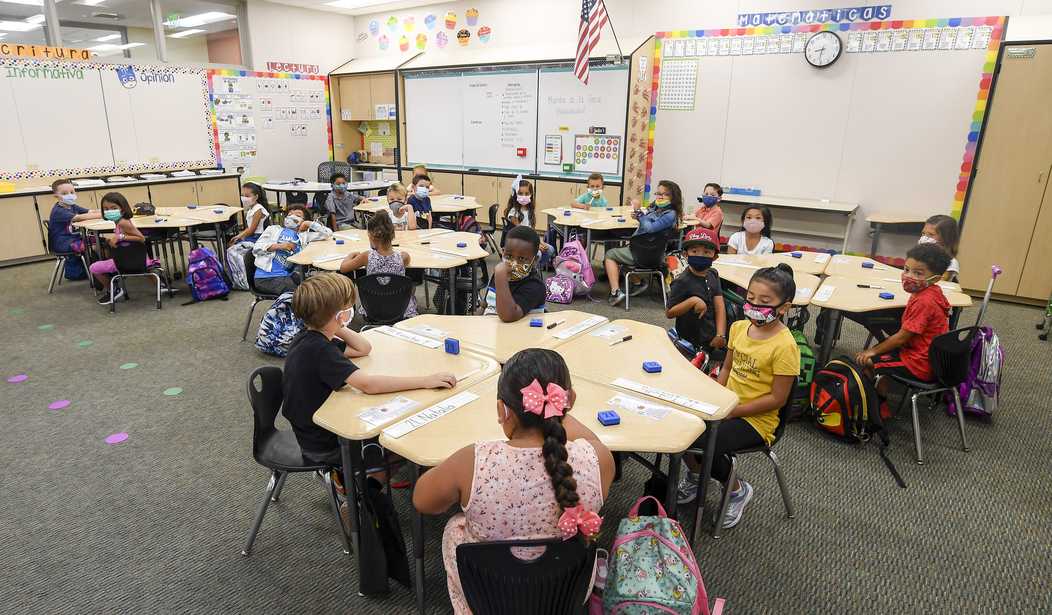Standardized tests for school-age children are one of the only ways to measure student progress and achievement.
This is important because each state has its own benchmarks for student achievement, and measuring a student's progress against others across the country can give parents a rough idea of where their children are situated across a broad spectrum.
According to U.S. News and World Report rankings, Illinois ranks in the bottom third of student achievement. Now, the state's education authorities want to improve that by "lowering the bar" on state achievement scores. They want the scores to demonstrate English language arts and math proficiency to be lowered to better reflect the "reality of student progress."
State Superintendent of Education Tony Sanders swore he's not trying to lower classroom education standards — except that's exactly what he's doing.
“As currently designed, our proficiency rates do not reflect the reality of student progress. They’re misaligned with what it actually means to succeed in college and career,” Sanders said Tuesday. “Students are being denied opportunities for acceleration, misidentified as needing intervention or believing that they’re not ready to go into college.”
"Proficiency rates"? Perhaps to increase that rate, teachers and educators should alter the course and try a new approach instead of trying to game the test scores.
The three standardized tests in question are the Illinois Assessment of Readiness for grades 3-8, the Illinois Science Assessment for grades 5, 8, and 11, and the ACT for high school students.
The science assessment is actually seen as too easy, so the proficiency test will be made more difficult. But the cold, hard reality is that Illinois schools are failing the children, and rather than trying to fix it, state education administrators want to blame standardized tests.
One Chicago English Language Arts (ELA) teacher shows what happens when you lower the achievement bar in the classroom.
“I’ve had hard-working students, especially from historically underserved communities, who showed tremendous growth and strong skills yet didn’t meet the proficient label,” 6th-grade teacher Comfort Agboola said. “That can be discouraging and make them feel like proficiency is out of reach.”
The changes mean a higher percentage of Illinois students will now be classified as proficient in reading and math, and a lower share in science. That’ll also make it more difficult to compare proficiency rates to prior years.
Asked Tuesday if lowering the benchmarks would mask post-pandemic challenges, Sanders denied that was the case.
“I don’t have a fear of misleading anybody with this,” he said.
Sanders and the Illinois educational establishment are only fooling themselves. If parents want to believe their kid's proficiency in reading jumped two or three grades because they think their child worked hard, they are also only fooling themselves.
The state is warning parents about exactly that.
Robin Steans, president of Advance Illinois, an education policy and advocacy organization, said state officials' reviews of cut scores are normal every decade or so, but they’re always bound to be “fraught.”
“You want to get it right,” Steans said. “You don’t want those cut scores to be artificially high so that we’re telling parents and kids they’re not ready if they really are. You don’t want them so low that parents and students think everything’s fine when it may not be.”
She said the state’s robust process for coming up with the new benchmarks should mean the result is a helpful change.
“We want to challenge our kids, but I worry if we are sending kids and families inaccurate information” by having scores too high to mean anything, she said.
"The changes won’t affect funding for districts, teacher evaluations, grade promotion, graduation requirements or information sent to colleges and universities. The tests themselves also won’t change," reports the Sun Times.
The only thing the changes will affect is the gigantic egos of state education bureaucrats, who will be able to pat themselves on the back for the excellent job they're doing.










